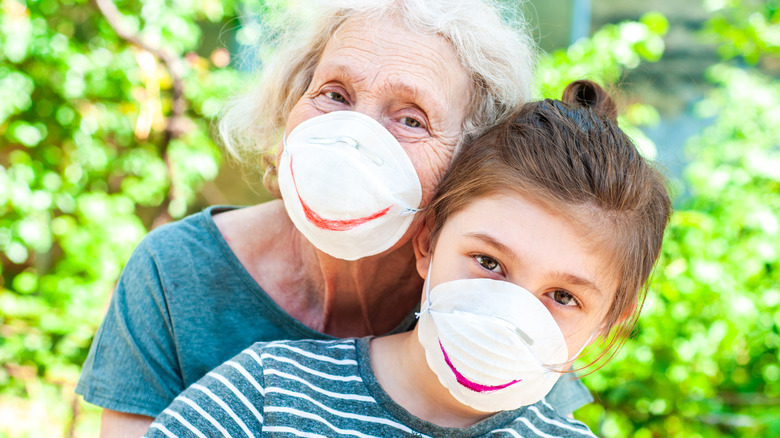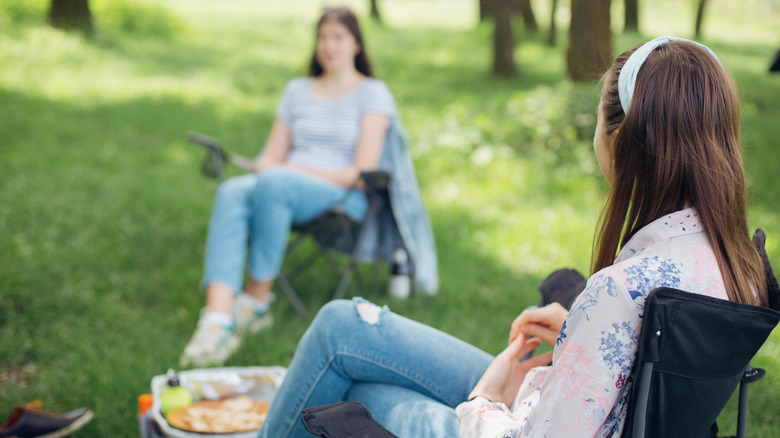How To Self-Assess Your Risk For COVID-19 And Stay Safe
While COVID-19 restrictions have significantly eased across states, certain populations do remain vulnerable to infection. Those who are unvaccinated, over the age of 50, or have pre-existing medical conditions are considered high-risk (via WebMD). With Philadelphia government officials being among the first to return to mandated mask-wearing in the coming week, it raises the question of who should continue to take extra precautions when it comes to navigating this current phase of the pandemic.
Professor and section chief of infectious diseases at Baylor College of Medicine in Houston, Dr. Thomas Giordano, tells WebMD, "we're at a phase of the epidemic where people can decide what's appropriate for them." With the return of large-scale public events such as concerts, parades, and sporting events across the country, or even smaller public gatherings of people, it's important to self-assess your risk for coronavirus infection if you're considering whether or not it's safe to partake in more social activities.
Questions to ask when assessing your COVID-19 risk
Chief of Infectious Diseases at UTHealth Houston and Memorial Hermann-TMC in Texas, Dr. Luis Ostrosky, tells WebMD that older individuals with comorbidities — particularly those who are unvaccinated or have yet to be boosted — should continue to abstain from activities outside of the home or should exercise caution while doing so with continued mask-wearing. Dr. Ostrosky goes on to add, "But if you're in your 20s, you have no comorbidities, and you're vaccinated and boosted, you probably can be doing more stuff outside and possibly in more high-risk settings."
In addition to factoring in your age, health, and vaccination status, the Government of Newfoundland and Labrador recommends that individuals who are considering taking part in more social activities take into account four key factors: people, space, time, and place. Self-assess using the following questions: Will there be a large number of people at this gathering? Do I intend to interact with numerous people at this event? Will I be in close contact with people for longer than 15 minutes? Will this be an indoor or outdoor event? Do I live with a high-risk family member? etc.
For instance, dining outdoors or running errands in the early morning or late evening hours when stores are less crowded are activities that would place you at lower risk for contracting COVID-19. By self-assessing your risk for COVID-19, you can help determine what choices are best for you and your loved ones when it comes to interacting with people outside of your household.


